Corrie Mckeague inquest concludes he died after going into bin
- Published

Corrie Mckeague, from Dunfermline, Fife, was based at RAF Honington which is about 10 miles (16km) north of Bury St Edmunds
The missing RAF gunner Corrie Mckeague who vanished on a night out in 2016 died after climbing into a commercial waste bin, an inquest concluded.
The airman, from Dunfermline, Fife, was 23 when he disappeared in Bury St Edmunds, Suffolk, on 24 September 2016.
He was last seen on CCTV going into a bin loading area but his body has never been found despite extensive searches.
Inquest jurors in Ipswich concluded he died after climbing into the bin which was then tipped into a waste lorry.
In a narrative conclusion they said Mr Mckeague died at about 04:20 BST in Bury St Edmunds as a result of "compression asphyxia in association with multiple injuries".
They said Mr Mckeague's "death was contributed to by impaired judgment due to alcohol consumption".
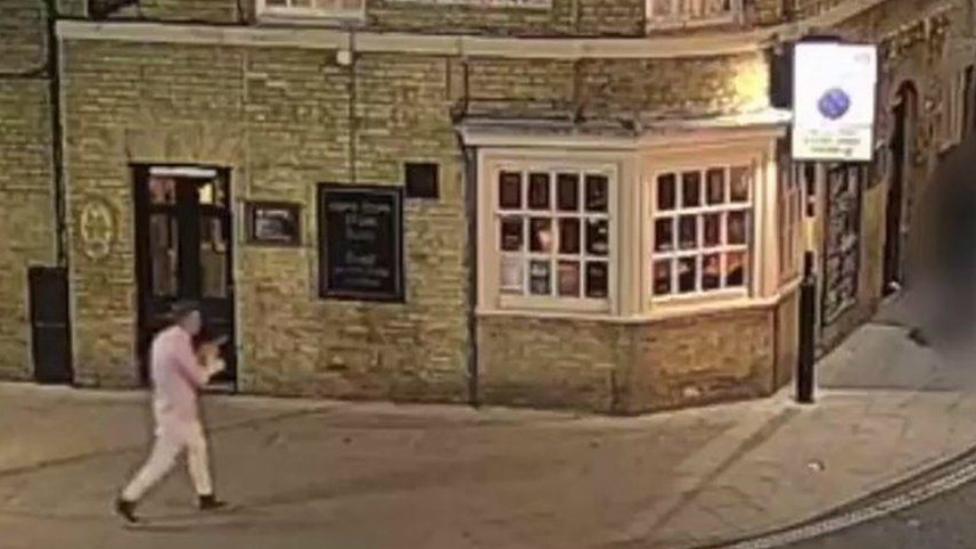
Mr Mckeague was last seen on CCTV on his own walking past The Grapes public house in Bury St Edmunds town centre
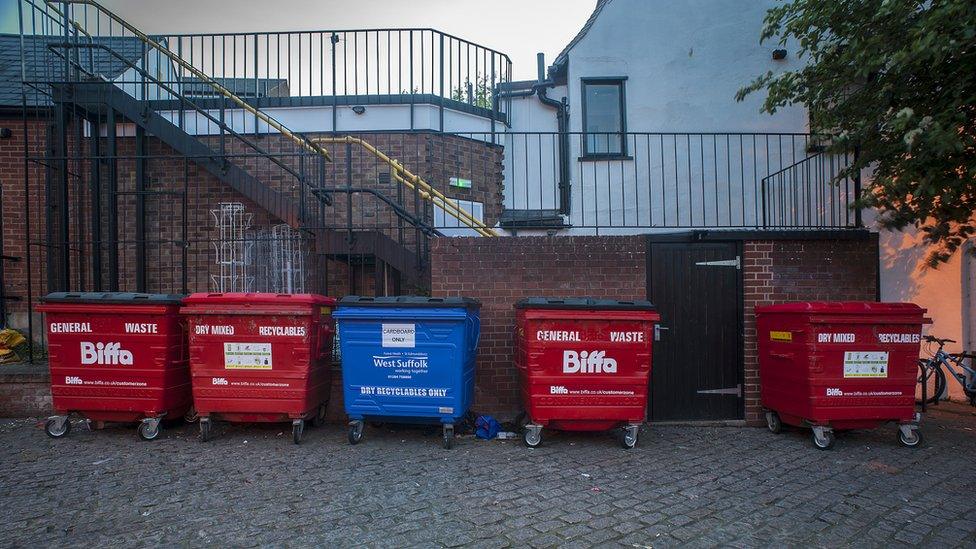
He was captured heading towards a bin loading area behind some shops, including Greggs, in Bury St Edmunds town centre
The jurors, who had heard two weeks of evidence at Suffolk Coroner's Court, said there were "ineffective bin locks" and an "ineffective search of the bin" before it was tipped.
During the inquest, it was heard Mr Mckeague, who was stationed at RAF Honington, had slept in a bin before.
He had also slept under bin bags on a previous night out, using them "like a blanket", and was a "heavy sleeper" when drunk, the hearing was told.
Mr Mckeague was described as being "significantly under the influence of alcohol" on the night he went missing.
He was seen asleep in a shop doorway earlier on 24 September before he awoke and walked to the bin loading area, known as "the horseshoe", where he was last seen.
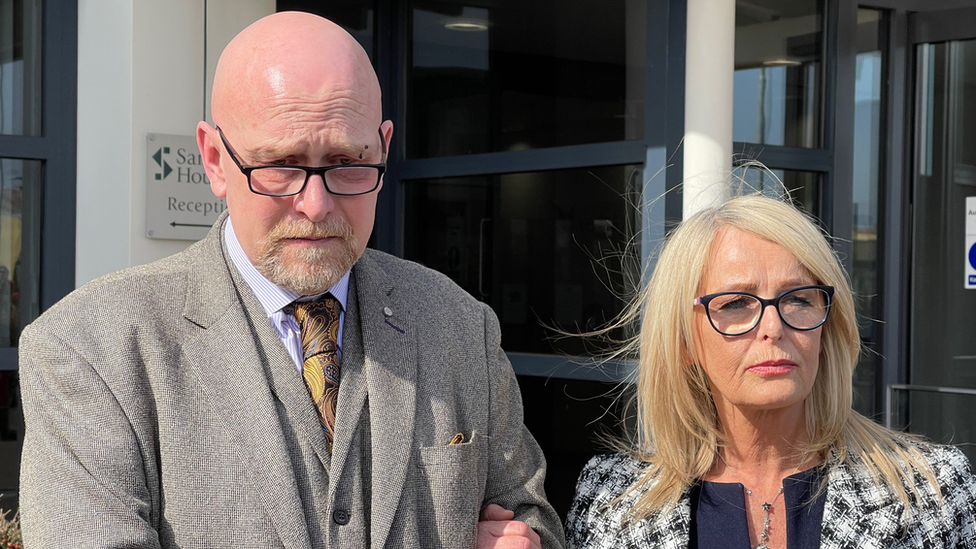
Mr Mckeague's father Martin said he hoped the conclusion would enable his son to "rest in peace"
Waste firm Biffa initially told police the weight of the bin was 11kg (1st 10lbs), and therefore not heavy enough to contain a person, but it was later recorded as 116kg (18st 3lbs).
The force said the movement of Mr Mckeague's mobile phone mirrored the movement of the waste lorry that collected the bin from the service area where he was last seen.
Mr Mckeague was not seen on CCTV leaving the area on foot.
His mother Nicola Urquhart said the "most obvious thing" was her son got into a bin that was later tipped into a waste lorry.
But she said before the inquest she had "other questions, though, and until they could be answered we couldn't get to that conclusion either".
"However, we've heard information in the inquest [so] that we now completely believe in the verdict that the jury have given today, 100%," she said,
Standing next to Mr Mckeague's brothers, Daroch and Makayen, she said: "As a family, we've now all walked out of there with a huge weight lifted off our shoulders."
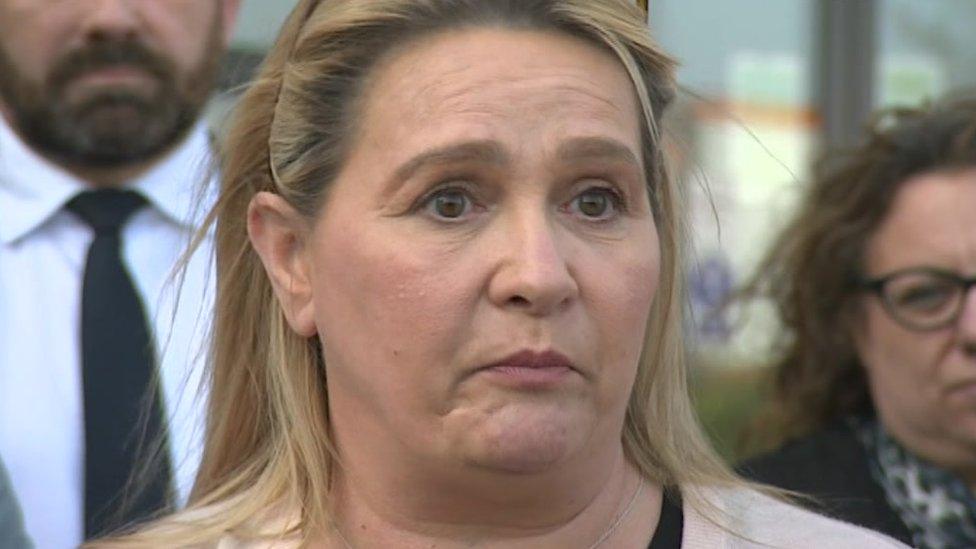
Nicola Urquhart, Corrie Mckeague's mother, said his legacy was his five-year-old daughter
His father, Martin Mckeague, said after the ruling that he hoped his son could "finally be left to rest in peace", with the inquest shining "a new light on the truth for everyone".
He did, however, criticise "conspiracy theorists" who he said had misled people.
"They've suggested Corrie may have gone AWOL or got lost on his way home to his RAF base," he said in a statement.
"We knew the facts and evidence could unfortunately only mean one horrible conclusion - Corrie climbed into the bin in the horseshoe area and tragically died in the waste disposal process."
Mr Mckeague described his son as a "loveable rogue who loved to socialise and party", and said he was "very much missed by all".
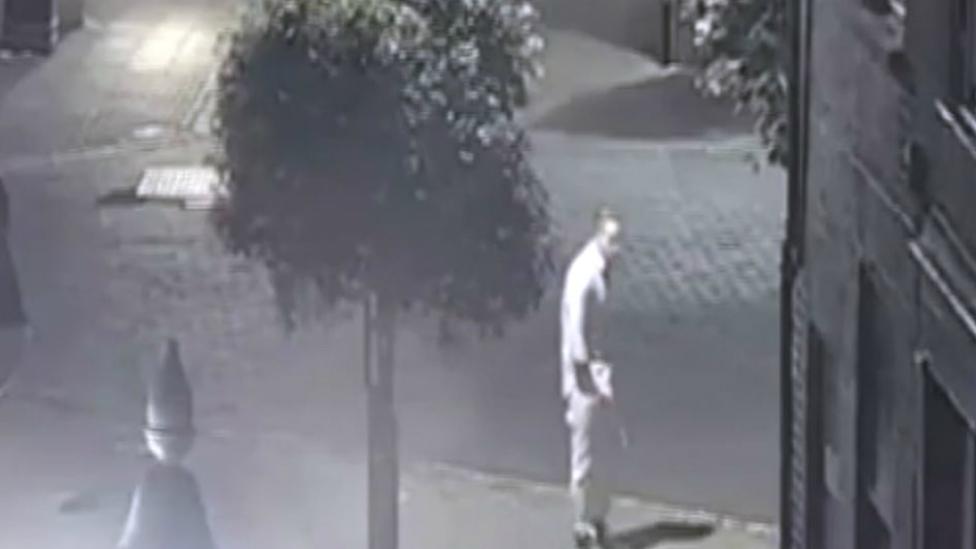
Corrie Mckeague, who was based at RAF Honington near Bury St Edmunds, was last seen wearing light-coloured trousers and a pink shirt
Suffolk's senior coroner Nigel Parsley said he could not imagine the "distress and anguish" Mr Mckeague's family had felt since he disappeared.
Mr Parsley expressed concerns about viewing panels, used to see inside the back of bin lorries, and said he would write to the British Standards Institute, bin lorry manufacturer Dennis Eagle and waste firm Biffa about these concerns.
He said he would also order a prevention of future deaths report in respect of "ineffective locks on bins".
A Biffa spokesperson said: "Our deepest sympathies are with Corrie's family and friends in this tragic case.
"This incident highlights the important, waste industry-wide issue, of people sleeping in waste containers, an issue which we have been actively campaigning on for the last 10 years."

Find BBC News: East of England on Facebook, external, Instagram, external and Twitter, external. If you have a story suggestion email eastofenglandnews@bbc.co.uk, external
- Published18 March 2022

- Published16 March 2022

- Published15 March 2022

- Published14 March 2022
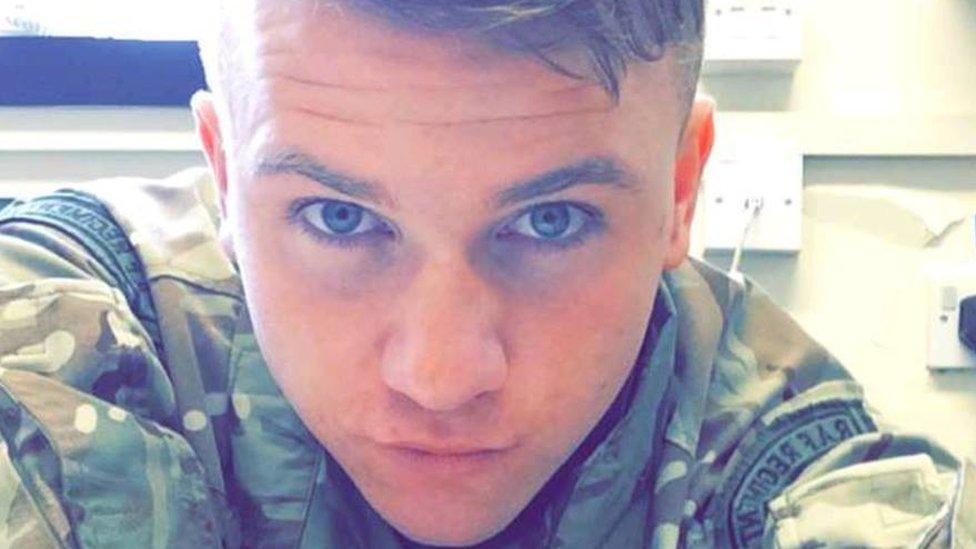
- Published8 March 2022
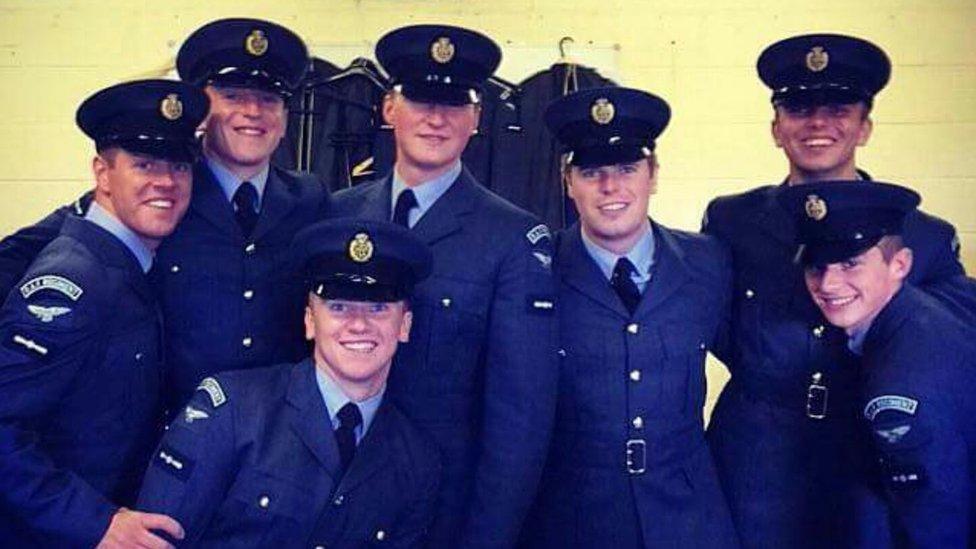
- Published7 March 2022
